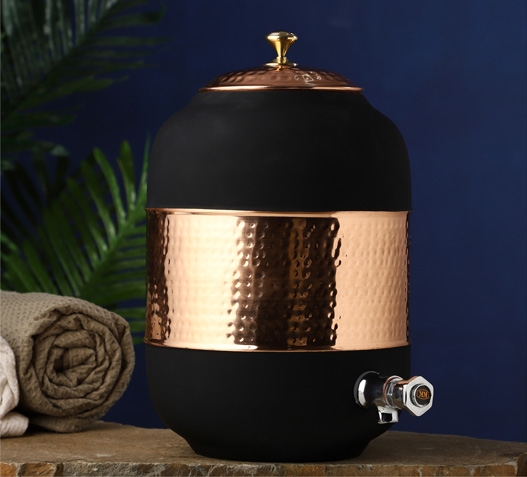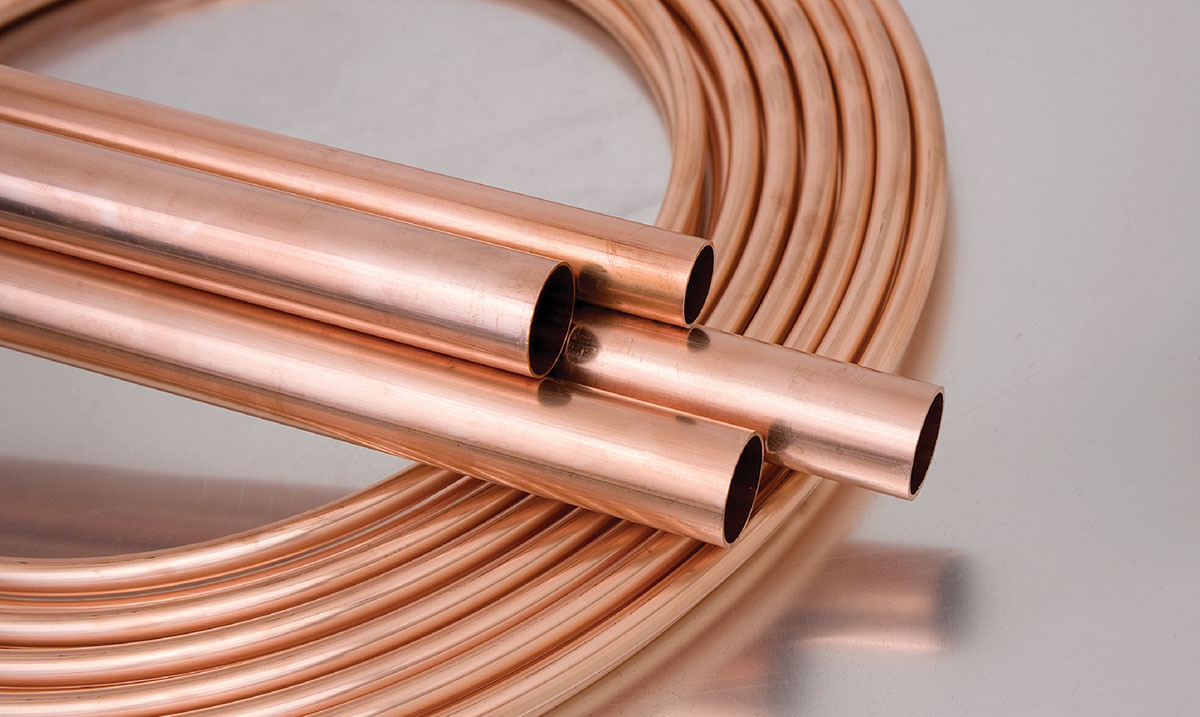Top Trends in Home Decoration Featuring Elegant and Useful Copper Products
Top Trends in Home Decoration Featuring Elegant and Useful Copper Products
Blog Article
Checking Out the Diverse Applications of Copper Products in Modern Industries
From improving the efficiency of electric systems to playing a crucial duty in sustainable power technologies, the convenience of copper is obvious. As industries increasingly prioritize development and sustainability, the varied applications of copper necessitate a closer examination, specifically concerning their prospective influence on future technical innovations and environmental techniques.
Electric Applications of Copper
Copper is an important product in the electric market, accounting for roughly 60% of the overall demand for non-ferrous metals internationally - Copper Products. Its remarkable electric conductivity, which is virtually twice that of light weight aluminum, makes it the preferred choice for a large range of electrical applications. From electrical wiring systems in industrial and household buildings to high-voltage power transmission lines, copper makes sure efficiency and integrity in power shipment
Along with circuitry, copper is indispensable to the production of electrical components such as generators, electric motors, and transformers. These elements leverage copper's thermal conductivity and pliability, essential for warm dissipation and reliable performance. Copper's resistance to rust boosts the lifespan and longevity of electrical systems, making it an affordable option in the long term.
The growth of renewable resource sources, such as solar and wind power, has actually additionally increased the need for copper in electrical applications. As sectors change in the direction of lasting energy solutions, copper's role comes to be much more essential. In general, the convenience and efficiency qualities of copper solidify its condition as a cornerstone material within the electric market, driving technology and effectiveness throughout various applications.
Plumbing and Piping Solutions
In modern pipes systems, the selection of products substantially impacts both performance and longevity. Copper has arised as a favored alternative as a result of its special homes, including rust resistance and antimicrobial attributes. These features ensure that copper piping continues to be long lasting and risk-free for transporting safe and clean water, a critical consideration in domestic and industrial applications.
One of the vital benefits of copper in pipes is its ability to hold up against heats and stress, making it ideal for a selection of applications, from warm water systems to heating and cooling networks. Additionally, copper's adaptability enables less complicated setup in complicated piping designs, minimizing the danger of leakages and failings.
Another noteworthy advantage is copper's long lifespan, often exceeding 50 years with correct maintenance. This long life not just reduces substitute expenses however likewise adds to lasting practices by reducing waste. Copper's recyclability aligns with contemporary environmental requirements, promoting a circular economy within the pipes industry.
Copper in Renewable Resource
The versatility of copper prolongs beyond pipes applications, playing an important role in the renewable energy field. In solar panels, copper is utilized in solar cells and circuitry, helping with reliable energy conversion and transmission.

Moreover, as the worldwide demand for electrical cars (EVs) boosts, copper's function in battery systems and billing infrastructure becomes even much more significant. The product's capacity to perform electrical power efficiently is integral to his explanation the performance of EV batteries, enhancing array and billing speed.
Copper's Role in Electronics
Electronics manufacturing counts heavily on copper's extraordinary properties, especially its high electrical conductivity and thermal performance. These qualities make copper a perfect selection for a wide variety of digital parts, consisting of connectors, circuit card, and electrical wiring. The steel's capacity to efficiently transfer electrical signals makes certain very little power loss, which is essential in high-performance digital gadgets.
Furthermore, copper's thermal conductivity plays a substantial duty in warmth dissipation, shielding delicate parts from overheating. This is especially essential in contemporary electronics, where small layouts cause increased heat generation. Copper is additionally favored for its pliability and ductility, enabling it to be conveniently shaped right into elaborate layouts that meet the needs of sophisticated electronic applications.
With the surge of YOURURL.com consumer electronics, telecoms, and electrical vehicles, the demand for copper in the electronics sector continues to expand. Therefore, copper remains a cornerstone product in the ever-expanding area of electronic devices.
Ingenious Uses in Manufacturing

One notable application remains in additive manufacturing, where copper-based materials are utilized in 3D printing processes. This enables the creation of light-weight elements and complicated geometries, specifically in the aerospace and auto markets. In addition, copper's thermal conductivity makes it an ideal selection for warmth exchangers, enhancing performance in industrial air conditioning systems.
Additionally, the surge of wise production has actually seen the consolidation of copper in IoT tools, where its conductive capacities sustain sophisticated sensing technologies. In the realm of eco-friendly energy, copper is crucial in the production of photovoltaic panels and wind turbines, assisting in more reliable power conversion and distribution.
As markets strive for sustainability and innovation, copper's adaptability and performance remain to position it as a crucial product, driving developments in manufacturing and adding to the development of smarter, extra efficient products.
Verdict
The essential click to find out more function of copper in sustainable energy and its necessary feature in electronic devices emphasize its importance in progressing sustainable methods. Collectively, these applications illustrate copper's critical contribution to technical progression and industrial efficiency in modern society.
From improving the performance of electrical systems to playing a vital role in renewable energy innovations, the adaptability of copper is apparent. As sectors progressively focus on innovation and sustainability, the varied applications of copper necessitate a closer assessment, especially regarding their possible impact on future environmental techniques and technological improvements.
The growth of renewable power resources, such as solar and wind power, has actually even more increased the demand for copper in electrical applications. In general, the convenience and performance features of copper strengthen its status as a cornerstone material within the electric market, driving technology and effectiveness across numerous applications.
The versatility of copper expands beyond pipes applications, playing a vital function in the renewable power field.
Report this page